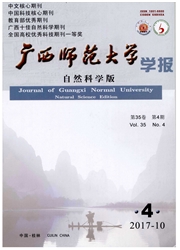

 中文摘要:
中文摘要:
为探讨饥饿再投喂对鳜肌FSRP-1、FSRP-3和肠道中PepT1基因表达的影响,本研究采用qRT-PCR技术,测定饥饿7d再饱食一餐后0、1、3、6、12、24、48、96h条件下鳜肌中FSRP-1、FSRP-3和肠道中PepT1基因表达水平的变化,研究结果表明:FSRP-1基因表达在投喂后12h内显著升高(P〈0.05),12-48h维持在较高表达水平,48h后显著降低(P〈0.05);FSRP-3基因表达在投喂后1h内显著降低(P〈0.05),12h达到峰值且表达量是1h的5倍,48h后显著降低(P〈0.05);PepT1基因表达在投喂后6h内显著降低(P〈0.05),48h时表达量最高。FSRP-1、FSRP-3和PepT1是与鱼类生长相关的重要基因,受饥饿再投喂的影响较大。
 英文摘要:
英文摘要:
To investigate postprandial changes in transcript abundance following a single satiating meal in mandarin fish(Siniperca chuatsi)going on a fast for 1week.The expression of FSRP-1and FSRP-3gene in fast myotomal muscle,as well as the PepT1 gene in small intestine were determined using quantitative real-time PCR at the following postprandial time points:0,1,3,6,12,24,48 and 96h.The results indicated that:FSRP-1transcripts were sharply up-regulated within 12 hof refeeding(P〈0.05),the transcripts were maintained in the high level from 12 hto 48h,then it was significant downregulation in response to feeding;The FSRP-3gene expression was increased significantly(P〈0.05)in1hpostprandially,and reached peak expression levels at 12 hpostprandially,and decreased significantly after 48hpostprandially(P〈0.05).The expression level of FSRP-3at 12 h was 5times higher compared with which at 1 h;The PepT1 gene had decreased expression in 6 h after the meal administration significantly(P〈0.05),and reached maximal expression levels at 48 hpostprandially.FSRP-1,FSRP-3and PepT1 were absolutely necessary,associated with growth,which were greatly influence by starvation and refeeding.
 同期刊论文项目
同期刊论文项目
 同项目期刊论文
同项目期刊论文
 期刊信息
期刊信息
